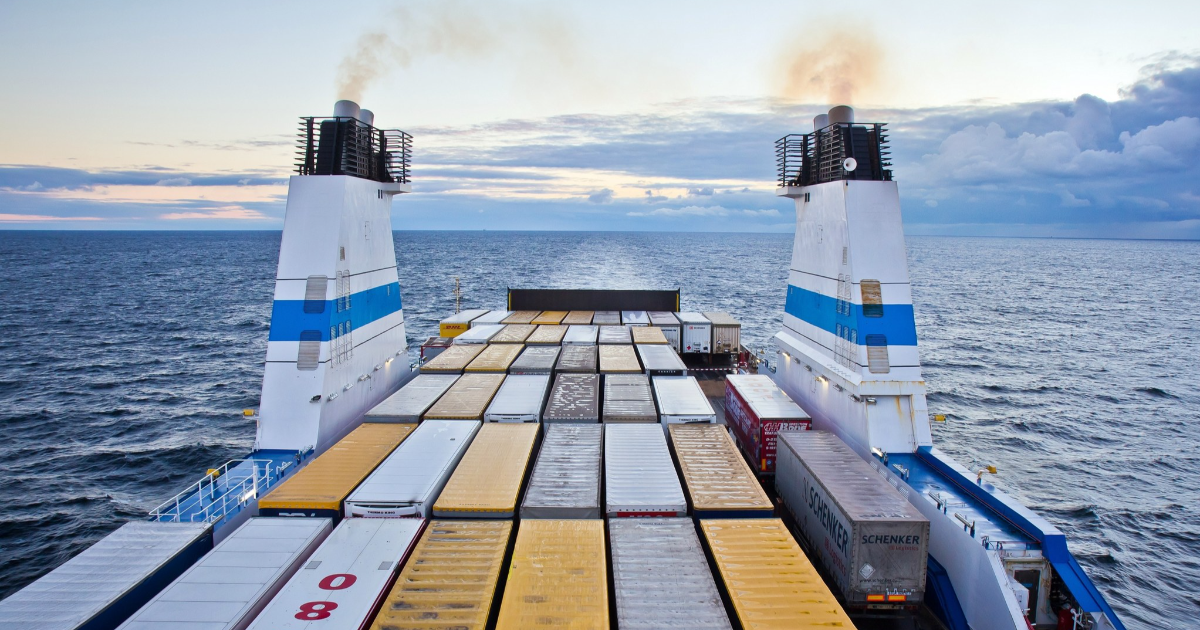IMO agrees weak solution to reduce greenhouse gas emissions from shipping

The Marine Environment Protection Committee (MEPC) of the International Maritime Organisation (IMO) has adopted a global short-term emission reduction measure. The decision is insufficient for any clear reduction of emissions in line with IMO targets. Finland joined the other EU Member States in opposing the inadequate level of carbon intensity cuts at a session that concluded on 17 June.
The IMO took a decision in 2018 to reduce the carbon intensity of international shipping by at least 40 per cent between 2008 and 2030. States at the MEPC session expressed differing views as to whether the remaining need for reductions between 2019 and 2030 was 10 or 21.5 per cent.
The meeting decided on a measure that seeks to reduce the carbon intensity of navigation by 11 per cent between 2019 and 2026. The decision for 2027-2030 was left to a later date. Finland and the EU Member States supported the more scientifically justified option of a reduction of no less than 21.5 per cent between 2019 and 2030, as this would certainly have achieved the 2030 emission reduction target. The 27 EU Member States were nevertheless outvoted when the final decision was taken at the session of 174 IMO members.
"It is unfortunate that no more ambitious outcome was reached at the IMO, and that there is no certainty of achieving the targets. The decision fails to send a sufficiently strong signal to shipowners and the entire maritime cluster about the urgency of climate action. Pressure is now growing on the European Union's own large-scale emission reduction measures," explains Finnish Minister of Transport and Communications Timo Harakka.
Carbon intensity refers to the ratio of carbon dioxide emissions to transport work done. While regulation now seeks to reduce carbon intensity, absolute emissions from navigation may fall, remain at the present level, or even grow. The final outcome will depend on the volume of maritime transportation. The annual carbon intensity reduction levels for 2027-2030 will be defined by 2026.
Exemptions for winter navigation to be decided later
Finland proposed an exemption from regulation at the MEPC session that would apply to ice-strengthened vessels moving in ice conditions. This would avoid imposing additional burdens on Finnish competitiveness due to winter navigation. The requested regulatory exemption was not adopted.
Negotiations concerning ice-strengthened vessels and other exemptions proposed at the session will continue when new guidelines are agreed to clarify the regulation. Finland will continue advocating and reaching out to other IMO Members to ensure that the special features of winter navigation are taken into account.
"We shall continue working to persuade other IMO Member States that the special features of winter navigation should be considered when regulating emissions. This is our primary aim in order to ensure a level playing field for shipping and Finnish competitiveness in international shipping," Minister Harakka stresses.
Remote meetings have led to slower policymaking
The proposal of a few States and the shipping industry to collect marginal fuel levies for an international R&D fund was not agreed at this session. Consideration of this proposal will continue at the next MEPC session in November.
Discussion of market-based and other medium and long-term measures will likewise continue at working group level and at the November session. Finland supports the development and early introduction of a global market-based emission reduction measure, such as carbon content pricing of maritime fuels.
Discussions on such topics as scrubbers, fuel life cycle emissions and reducing plastic waste from ships at sea were also postponed to the autumn session. The working day at IMO remote sessions is shorter than usual to maximise daytime attendance around the world.
Finnish attendees at the session held between 10 and 17 June 2021 represented the Ministry of Transport and Communications, the Ministry of the Environment, the Finnish Transport and Communications Agency (Traficom), the Finnish Meteorological Institute, and the Provincial Government of Åland.
What are the next steps?
Discussion of market-based and other medium and long-term emission reduction measures will begin at the next MEPC session in November. The emission reduction impact of these measures will probably be much greater than that of the short-term measure now decided. Finland has proposed new working arrangements to speed up discussion of GHG matters at the IMO. These proposals were warmly received, with a decision expected at the next MEPC session in November 2021.
The European Commission has declared an intention to broaden EU emissions trading to include shipping. A proposal is due on 14 July 2021 as part of the Commission's Fit for 55 climate package. Details have yet to emerge on how European maritime emissions trading would be implemented.
Inquiries:
Eero Hokkanen, Ministerial Adviser, Ministry of Transport and Communications, tel. +358 50 476 0401, eero.hokkanen(at)lvm.fi, Twitter @eerohokkanen
Anita Mäkinen, Chief Adviser, Finnish Transport and Communications Agency (Traficom), tel. +358 40 162 4592, anita.makinen(at)traficom.fi, Twitter @AnitaMakinen
Press release, 6 May 2021: Government resolution to reduce emissions from maritime and inland waterway transport – focus on effective global action
Press release, 7 May 2021: Finland influences shipping emissions trading
Press release, 5 May 2021: New ways to reduce international shipping emissions as of 2023
Marine Environment Protection Committee (MEPC)



